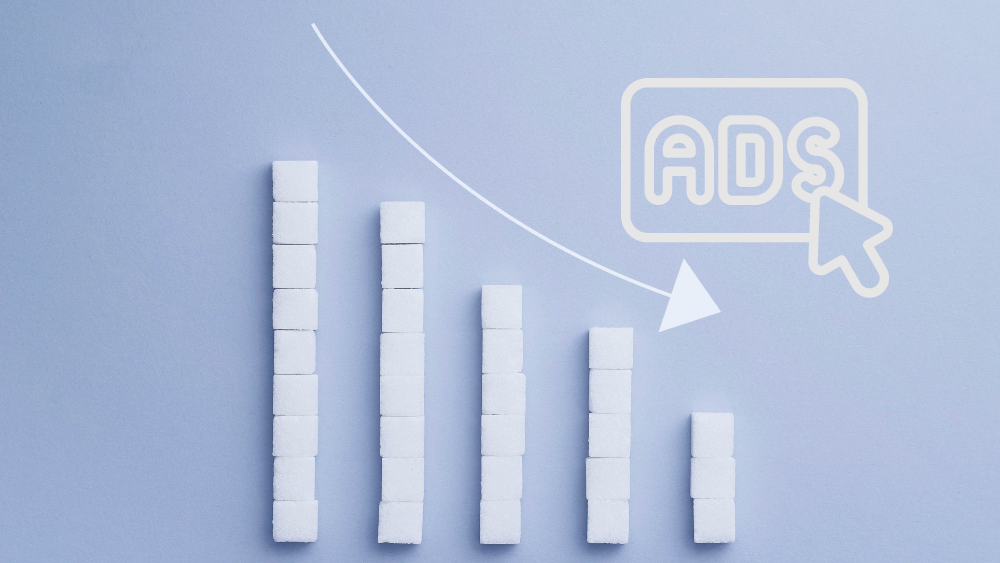The decline in Facebook Ads' effectiveness may be attributed to various factors, such as increased competition, ad fatigue, and algorithm changes.
Introduction
Is it just me, or have you noticed that Facebook ads getting worse?
It seems like every time I scroll through my news feed, I’m bombarded with irrelevant and poorly targeted ads. What happened to the days when Facebook was a goldmine for advertisers?
The decline in Facebook Ads’ effectiveness may be attributed to various factors, such as increased competition, ad fatigue, and algorithm changes.
Let’s explore the recent changes and updates to Facebook Ads that may be causing their decline in effectiveness.
We’ll also discuss the impact on small businesses and advertisers, as well as possible reasons behind this shift.
Recent Changes and Updates to Facebook Ads
Facebook is constantly updating its advertising platform, striving to provide a better experience for both advertisers and users. However, recent changes have left many businesses questioning the effectiveness of Facebook ads.
One significant update is the introduction of stricter ad policies. Facebook now has more stringent guidelines regarding what can and cannot be promoted on its platform.
While this is aimed at improving user experience by reducing spam or misleading ads, it also means that some legitimate businesses may find their ads rejected or flagged.
Another change is the decrease in organic reach for business pages. To prioritize content from friends and family, Facebook has made it increasingly difficult for businesses to reach their audiences without paying for ads.
This decline in organic reach has forced many small businesses to rely heavily on paid advertising.
Furthermore, there have been updates to targeting options and algorithms used by Facebook’s ad platform.
These changes aim to improve audience targeting and deliver more relevant ads; however, they can also lead to increased competition among advertisers and higher costs per click or impression.
These recent changes have made it more challenging for businesses to achieve the same level of success with Facebook ads as they once did.
Advertisers need to stay informed about these updates and adapt their strategies accordingly in order to maximize their return on investment from Facebook advertising efforts.
The Decline of Organic Reach on Facebook
What exactly is organic reach? It refers to the number of people who see your content without any paid promotion or advertising. In other words, it’s the natural way for your posts to reach your audience.
Unfortunately, this once-effective method has been steadily declining over time.
Many experts believe that this decline can be attributed to several factors. Foremost, there is simply too much content being posted on Facebook every day.
With millions of users sharing updates constantly, it’s becoming increasingly difficult for individual posts to stand out in users’ news feeds.
Additionally, Facebook has made changes to its algorithm over the years which prioritize personal connections and meaningful interactions over promotional content from businesses.
This means that even if someone follows your page, they may not see all of your updates unless they regularly engage with them.
As more advertisers flock to Facebook Ads as a way to promote their products or services effectively, competition for visibility has increased dramatically.
This means that even if you do decide to invest in paid ads on Facebook, there’s no guarantee that they will perform as well as they used to.
The decline in organic reach on Facebook poses challenges for small businesses and advertisers alike.
For smaller companies with limited marketing budgets, relying solely on organic reach can severely limit their ability to connect with potential customers.
How to Overcome the Challenges of Facebook Ads Getting Worse:
1. Focus on creating high-quality content that resonates with your target audience.
2. Utilize targeting options available within Facebook Ads Manager.
3. Experiment with different ad formats such as video ads or carousel ads.
4. Regularly monitor and adjust your ad campaigns to optimize performance.
The Impact On Small Businesses And Advertisers Of Facebook Ads Getting Worse
For small businesses and advertisers, the decline in the effectiveness of Facebook ads can have significant consequences.
These platforms have been a cost-effective way for businesses to reach their target audience and drive traffic to their websites.
However, with the recent changes and updates to Facebook’s algorithm, organic reach has significantly declined.
Small businesses that relied heavily on organic reach are struggling to get their content seen by users without paying for advertising.
This shift has forced many businesses to increase their ad spend or explore alternative advertising channels.
Additionally, the increasing competition among advertisers has driven up the cost of Facebook ads.
As larger brands allocate more budget towards paid advertising, smaller businesses may struggle to compete for ad space and visibility with in users’ news feeds.
Moreover, as user trust in social media platforms declines due to privacy concerns and fake news controversies, people are becoming less inclined to engage with sponsored posts or click on advertisements.
This further reduces the effectiveness of Facebook ads for small businesses trying to generate leads or conversions.
To overcome these challenges, small businesses should consider diversifying their digital marketing strategies beyond just relying on Facebook ads.
Exploring other social media platforms like Instagram or Twitter may provide better opportunities for reaching target audiences organically or through influencer partnerships.
6 Possible Reasons For Facebook Ads Getting Worse
1. Ad Over saturation: With millions of businesses on Facebook, competition for attention has skyrocketed. Users are bombarded with ads daily, leading to ad fatigue and decreased engagement.
2. Algorithm Changes: Facebook’s algorithm determines what content users see in their newsfeed. Recent updates prioritize personal connections over branded content, resulting in lower organic reach for businesses.
3. Decreased Organic Reach: As mentioned earlier, organic reach on Facebook has significantly declined. This means that even if you have a substantial following, your posts may not be seen by a large portion of your audience without paid promotion.
4. Ad Blockers: Many internet users utilize ad-blocking software to enhance their browsing experience and avoid intrusive advertising.
5. Rising Costs: Due to increased competition and limited inventory space, the cost-per-click (CPC) or cost-per-impression (CPM) rates for Facebook ads have risen considerably over time.
Small businesses with limited budgets may find it challenging to achieve desired results within their allocated spend.
6. Changing User Behavior: As social media platforms evolve, user behavior changes too – people are spending less time scrolling through feeds and more time engaging with private messaging apps like WhatsApp or Instagram Direct Messages.
It is crucial for advertisers and small business owners alike to understand these challenges and adapt accordingly when utilizing Facebook Ads as part of their marketing strategy.
Alternative Advertising Platforms to Consider
While Facebook Ads getting worse, there are alternative advertising platforms that could help small businesses and advertisers reach their target audience more effectively.
One such platform is Google Ads. With its vast reach across the internet, Google Ads allows you to display ads on popular websites and search engine results pages.
It also provides advanced targeting options based on keywords, demographics, and user behavior.
Another option is Instagram Ads. As a subsidiary of Facebook, Instagram offers a visually appealing platform for advertising products or services.
With over 1 billion monthly active users, it can help businesses connect with a younger demographic through engaging visual content.
LinkedIn Ads is another noteworthy choice for B2B companies looking to target professionals and decision-makers. It enables highly targeted campaigns based on job titles, industries, and company size.
For businesses focused on video content marketing, YouTube ads can be an effective choice.
With billions of daily views, YouTube allows you to showcase your brand through various ad formats before or during videos relevant to your target audience’s interests.
By exploring these alternative advertising platforms alongside Facebook Ads (despite its recent challenges), you can diversify your digital marketing efforts and increase the chances of reaching potential customers effectively.
Conclusion
In today’s ever-changing digital landscape, evidently, Facebook ads getting worse.
The recent changes and updates to the platform have resulted in a decline in organic reach and effectiveness for small businesses and advertisers.
While there may be several reasons contributing to Facebook ads getting worse, including increased competition and algorithmic shifts, it is important for businesses to adapt and find ways to overcome these challenges.
By understanding the changes in Facebook ads’ effectiveness, advertisers can employ strategies such as targeting specific audiences, creating engaging content, and utilizing other advertising platforms.





